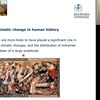causally
Does educational attainment matter forattitudes toward immigrants in Chile? Assessingthe causality and generalizability of highereducation's so‐called “liberalizing effect” oneconomic and cultural threat
The British Journal of Sociology, vol. 75, issue 5 Abstract Despite a large literature consistently showing a relationship between higher levels of education and lower levels of ethnic prejudice, some pattaining
Evidence from a long-term experiment that collective risks change social norms and promote cooperation
Nature Communications 12, 5452 AbstractSocial norms can help solve pressing societal challenges, from mitigating climate change to reducing the spread of infectious diseases. Despite their relevance, h
Robert Goodin: Structures of Complicity
Structures of Complicity: Consumers, Producers, Suppliers with Professor Robert E. Goodin, Australian National University AbstractUnder certain circumstances, businesses and consumers might be morally
Research seminar: Erik Wengström - Intended and unintended consequences of financial incentives
Place: Holländargatan 13, Stockholm, or online Research seminar with Erik Wengström, Professor of Economics at Lund University and Distinguished Senior Fellow at Hanken School of Economics / Helsinki Gr

Erik Wengström: Intended and unintended consequences of financial incentives
Erik Wengström, Professor of Economics at Lund University and Distinguished Senior Fellow at Hanken School of Economics / Helsinki Graduate School of Economics. His research focuses primarily on how pe
Inherited Trust and the Economic Success of Second Generation Immigrants
Martin Ljunge, Institutet för Näringslivsforskning (IFN) ABSTRACTThe paper that will be presented finds significant private returns from trust. Individuals with high trust earn more. Greater trust lead

Fredrik Charpentier Ljungqvist: Impacts of past climate variability – lessons for the 21st century
The talk summarizes key findings of state-of-the-art research on how climate variability and change have affected different aspects of human history in medieval and early modern Europe (c. 700–1815 CE

Patrik Lindenfors
I am an Associate Professor of Zoological Ecology at the Department of Zoology, Stockholm University, where I also got my PhD, but have for the last years mainly worked at the Centre for the Study of
Completed: Conflict, cooperation and equality
Our social networks are widening, our society is becoming more egalitarian and violent social conflicts are decreasing. What is the connection between these three long-term and persistent trends?
Fredrik Charpentier Ljungqvist: Impacts of past climate variability – lessons for the 21st century
Place: Institute for Futures Studies, Holländargatan 13, Stockholm or onlineREGISTERResearch seminar with Fredrik Charpentier Ljungqvist, Professor of History.ABSTRACT The talk will start with summaris








